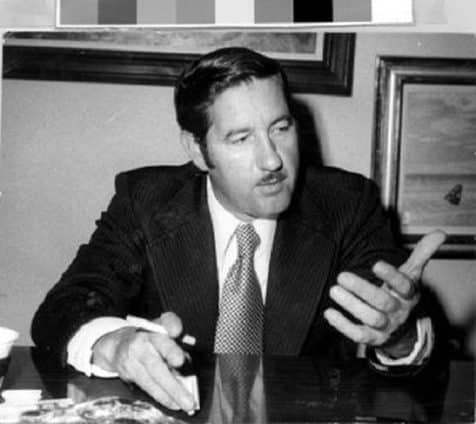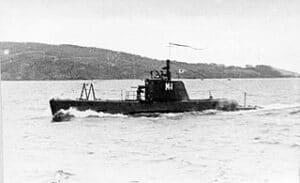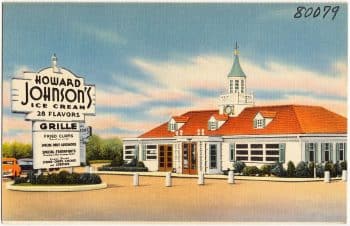Home » Crime and Fraud • US business news » The 9 biggest business frauds of the 1970s
The 9 biggest business frauds of the 1970s
https://www.whatjobs.com/news/business-crime-and-fraud/the-9-biggest-business-frauds-of-the-1970s

By Hugh Fort in Crime and Fraud, posted February 7, 2024

Massive frauds in huge corporations have happened for many years.
The collapse of companies like WorldCom and Enron due to criminal behavior is definitely not a new thing.
In fact, billions of dollars were being stolen from companies as far as 50 years ago.
Here are the 10 biggest frauds of the 1970s.
READ MORE: The Longest Sentences Handed Out For Fraudsters In The US
Equity Funding Corporation of America Scandal (1973)
This crime is seen as one of the biggest insurance frauds in history.
In 1973, The Equity Funding Corporation of America sold over $2 billion - a colossal amount for the time - of fake policyholders.
There was even a computer system entirely dedicated to the fake accounts.
More than 60,000 fake policies were created before the company filed for bankruptcy.
Boss Stanley Goldblum admitted charges and was jailed for eight years.
Executive vice-president Fred Levin was sentenced to seven years.
In all, 22 people involved were convicted.
Robert Vesco's Investment Overseas Services (IOS)
Robert Vesco was a criminal financier who got caught up in a huge fraud in the early 1970s.
In 1970, he made a successful takeover bid for Investors Overseas Service Ltd, an investment company.
The company started to suffer financially, and there was little interest in saving it from other firms.
A legal battle ensued over control, in which Vesco was accused of looting hundreds of millions of dollars.
The mess saw many rich and powerful people linked to the company.
Vesco was accused of parking cash in a number of fake companies, and even breaking into a Swiss bank vault to steal shares.
He fled the country and spent time living in countries with no extradition treaties to the US.
In 1973, he took the company's private jet to Costa Rica, as well as around $200 of IOS's investments, according to the SEC.
He continued legal battles from homes in Costa Rica and The Bahamas.
The battle for control of ICC, another company he owned, raged until 1983, when the company agreed to pay $12 million to him to relinquish control.
He was never tried for his crimes and died in 2007 in Cuba at the age of 71.
The Lockheed Bribery Scandal (1976)
In the mid-1970s, the American aerospace company Lockheed was embroiled in a worldwide scandal when it admitted to bribing foreign officials to secure contracts for its aircraft.
It was revealed in 1976 the firm had paid $22 million in bribes to foreign officials as it looked to sell the F-104 Starfighter.
Scandals were alleged to have taken place in Germany, where allegations were never proven.
In Italy, several high-profile politicians were forced to resign as a result.
Japan saw then Prime Minister Kakuei Tanaka take $3 million in bribes before Lockheed won a contract to provide aircraft.
He was jailed for four years in 1983 after being found guilty of violations of foreign exchange control laws, but not bribery.
He continued to appeal and never spent a day in prison until his death in 1993.
The scandal also reached the Netherlands, where it was revealed Prince Bernhard received a £1.1 million bribe in the early 1960s.
He denied it until his death in 2004.
The scandal also played a part in the formulation of the Foreign Corrupt Practices Act which President Jimmy Carter signed into law on December 19, 1977.
This made it illegal it illegal for American persons and entities to bribe foreign government officials.
READ MORE: The “Crazy Eddie’s” Cash Scam That Landed Owner In Jail
Stirling Homex Corporation (1972)
This was one of the earliest cases of accounting fraud in an American public company.
The company, a pioneer in modular home construction, was found to have greatly inflated its reported revenues and profits.
It went bankrupt in 1972.
Three years later, various company executives were charged with fraud and conspiracy and in 1977, four staff were given jail terms.
Zodiac Investment Scandal (1979)
Away from America, Frenchman Didier Pineau-Valencienne, CEO of French-Belgian company Zodiac, was accused of manipulating share prices and defrauding shareholders.
He was eventually convicted in 1979.
Franklin National Bank (1974)
Once one of the 20 largest banks in the nation, Franklin National Bank collapsed after the discovery of large-scale foreign exchange fraud and mismanagement.
In 1972, Michele Sindona, a banker with close ties to the Mafia, bought a controlling interest in Long Island's Franklin National Bank.
His purchase meant he had a money-laundering operation to sit alongside his ties to the Vatican Bank and the Sicilian drug cartel.
He sued the bank to transfer money, produce letters of credit and trade in foreign currencies to build a banking empire.
Sindona also had influence in the Republican Party and it is alleged he used this to ensure his background did not stop him becoming vice-chairman and the largest stockholder in the bank.
At the same time he started to suffer massive losses in foreign exchange markets, and decided to defraud the bank of $30 million to cover the losses.
This led to management declaring huge losses, which led to depositors taking their money out and the company having to borrow $1 billion from the Federal Reserve Bank.
Need Career Advice?Get employment skills advice at all levels of your career
Despite this, in October 1974 the bank was declared insolvent due to mismanagement and fraud.
The following year, Peter Shaddick, the bank's former executive of the bank's international division, admitted fraud.
Paul Luftig and J.Micheal Carter, the bank's former President and chief administrative officer, and former senior vice-president, were convicted of falsifying financial records.
Giorgio Ambrosoli, a lawyer in charge of liquidating Sindona's financial empire, provided the evidence to convict him.
He was later murdered by a Mafia hitman in 1979.
Sindona was convicted in the U.S in 1980 and was extradited to Italy in 1984.
He was given a life sentence but died of cyanide poisoning while in prison.
Some sources say he was murdered, while others say he took his own life.
The bank's assets were acquired by European American Bank, which was later acquired by Citigroup.
Follow us on YouTube, Twitter,LinkedIn, and Facebook.











